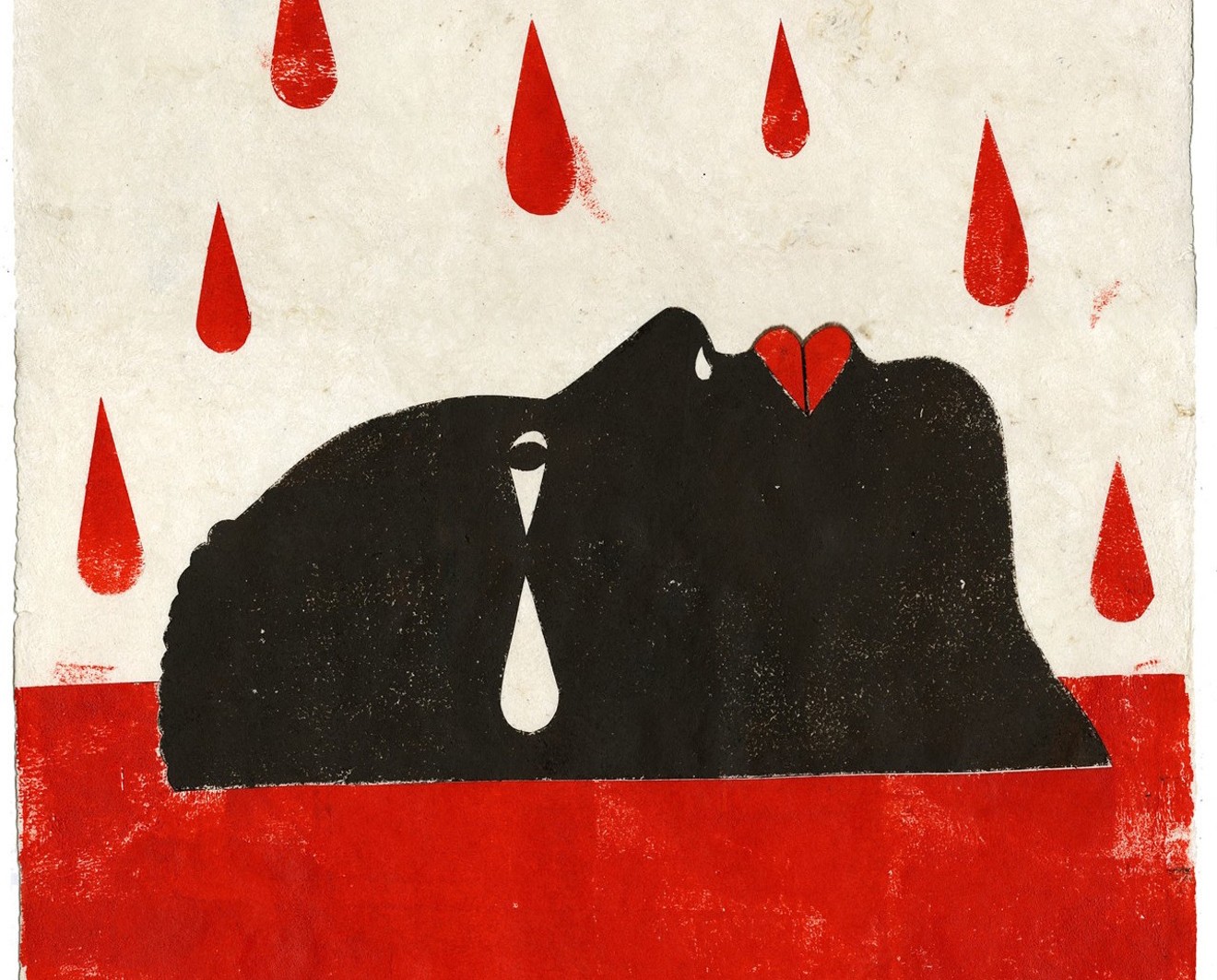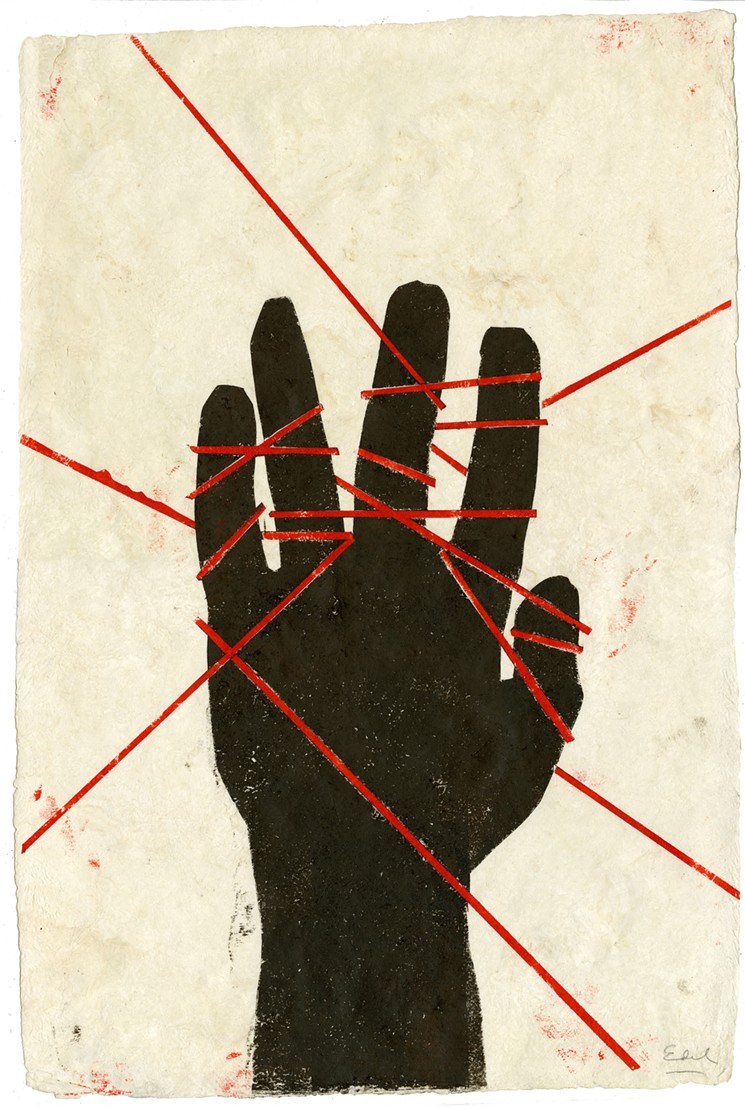Tucked among the stalls at Scope Art Show, a South Carolina gallery is showing works by Cuban and other Latin American artists. Vintage prints of Revolutionary Cuban photography aim to right the wrongs suffered by the artists who created them in the 1950s and '60s.
But the gallerist showing the work has been accused of wrongdoing herself.
In August, Charleston City Paper published the stories of four local artists who took legal action against Rebekah Jacob of Rebekah Jacob Gallery for allegations of untimely payment, damaged work, lost work, and nonpayment. Jacob is also the gallerist behind Vedado Gallery, which is part of Scope Art Show in Miami Beach this week.
In a later article, the publication reported that "the number of artists and former business associates who have worked with Jacob contacting the City Paper has continued to grow." Though many in the Charleston arts community are aware of the allegations, many outside it are not. Several of the artists alleging wrongdoing by Jacob are concerned that up-and-coming artists might not be able to make informed decisions about gallery representation.
"I was not told the truth about a number of things," New Orleans-based photographer Richard Sexton, one of the interviewed artists, tells New Times. "There was a litany of problems regarding not reporting sales in a timely manner, paying in a timely manner, not taking care of artwork entrusted to her... there was all kinds of damage.”
He cites his documentation of an incident in which a limited-edition print of a photograph was missing when he traveled to Charleston in January 2016 to withdraw his work from the gallery. Jacob told him the print was at the framer's, but the framing company denied ever possessing it. City Paper reported that "Jacob claims that the print was eventually recovered and sold, attributing the lost work to an inventory error on her part. The apparent exception to her lack of confidence in other artists' management skills, Jacob admits that Sexton is an excellent record keeper." Legal action was often met with Jacob's late recollections or failure to appear in court.
But Rebekah Jacob isn't an unknown talent; she's an accomplished gallerist with credibility. The City Paper articles cite artist Tim Hussey's recognition that "she had a passion for contemporary work and the persistence to move both of their careers forward." So why hasn't this news of lost credibility reached Miami yet?
Sexton attributes this disparity to the competitiveness of the art world and the insularity of its markets. "I think there’s, generally speaking, an industry problem, in that nothing is ever properly vetted, and artists are so eager to get representation [that when] anybody that’s in the art business says, 'I’ll give you a show, I want to handle your work, I think I can sell it,' people lunge at that opportunity."
Jacob's Vedado Gallery exhibition at Scope marks a pivot to the 20th Century and contemporary Latin American, especially Cuban, markets — a move Sexton attributes to loss of trust from the Charleston art community. At its center is a showcase of vintage prints of Revolutionary Cuban photography from 1959 to 1964 by Alberto Korda, Roberto Salas, Raul Corrales, and Osvaldo Salas. As historical and artistic artifacts, the images represent conflicting ideals of freedom and, in subtler fashion, the unauthorized reproduction of Cuban art in this period.
The Victoria and Albert Museum has called Alberto Korda's famous Guerrillero Heroico of Che Guevara "one of the most reproduced images in the history of photography." Due to Cuban art policy during the Revolution that initially denied Cuban artists the right to intellectual property such as artwork, as well as the American embargo on Cuban exports including fine art, Korda did not receive a fair fraction of what the image is worth. Though there has been great progress, Cuban artists are still reconciling decades of exclusion from the international art community.
The Vedado exhibition also presents contemporary Cuban art, like that of internationally acclaimed Cuban-born and Hialeah-raised Edel Rodriguez, whose work deals with themes of war, cultural displacement, migration, history, myth, and ritual. Rodriguez tells New Times that he is aware of the allegations against Jacob but he prefers to focus on his own experiences with gallerists. Other artists represented by the gallery tell New Times they were unaware of the allegations.
Jacob is clearly passionate about this project. "[The exhibition] is celebratory of so many artists who are of that heritage... the colors, the tone, the texture — so much of it is inspired by being from Latin America," she tells New Times. Regarding her move toward Latin American markets, she says, "Certainly, Charleston has something to do with it. It’s not a progressive market." By contrast, she calls Miami a progressive market that draws "artists and dealers from all over the world."
Jacob says she has not read the City Paper article because of her travels in Cuba. She says that business has not suffered and that buyers remain consistent.
Regarding the allegations, Jacob is nonplussed. “It has been a smear campaign that has been going on for six years," she says. "It’s irrelevant to what I do.”
[
{
"name": "Air - MediumRectangle - Inline Content - Mobile Display Size",
"component": "19274298",
"insertPoint": "2",
"requiredCountToDisplay": "2"
},{
"name": "Editor Picks",
"component": "17482312",
"insertPoint": "4",
"requiredCountToDisplay": "1"
},{
"name": "Inline Links",
"component": "18711090",
"insertPoint": "8th",
"startingPoint": 8,
"requiredCountToDisplay": "7",
"maxInsertions": 25
},{
"name": "Air - MediumRectangle - Combo - Inline Content",
"component": "17482310",
"insertPoint": "8th",
"startingPoint": 8,
"requiredCountToDisplay": "7",
"maxInsertions": 25
},{
"name": "Inline Links",
"component": "18711090",
"insertPoint": "8th",
"startingPoint": 12,
"requiredCountToDisplay": "11",
"maxInsertions": 25
},{
"name": "Air - Leaderboard Tower - Combo - Inline Content",
"component": "17482313",
"insertPoint": "8th",
"startingPoint": 12,
"requiredCountToDisplay": "11",
"maxInsertions": 25
}
]












